
We all make mistakes, especially when learning anything new. Writing is not immune to process. Contrary to popular belief, writing great stories is HARD.
It takes time, devotion, training, mentorship, blood, sacrifice and the willingness to make a ton of mistakes. This means countless hours and probably years of practice (which also means writing a ton of crappy books/stories).
As I mentioned in the last post, George R.R. Martin didn’t become a legend because of his marketing abilities and mad HootSuite skills.
No, he’s a master because he’s practiced and honed raw talent until he could create a series that’s become a global phenomenon.
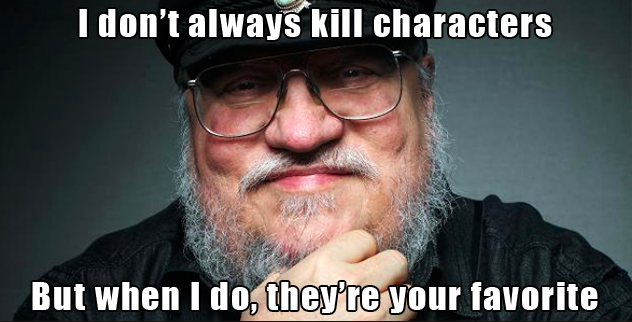
Same with J.K. Rowling, Neil Gaiman, Stephen King, and all the other ‘greats.’ They didn’t begin as legends. It took time, practice, and a fair share of ugly drafts and stories.
With practice, we learn what works, what doesn’t, what sizzles and what fizzles. We find, develop and mature our writing voice.
The problem I see these days is that, now that we’ve transitioned into the digital age and it’s so easy to self-publish, many writers are ‘ad-men’ before artists.
In the old publishing paradigm, writers faced rejection until they either gave up or learned how to tell better stories that audiences would pay to read. Writers made the mistakes in private before permitted onto the VERY EXCLUSIVE public stage.
Now? There are so many books flooding the market, it’s far harder to get authentic and useful feedback. Tougher to know what we’re doing wrong when the books don’t sell, no one leaves a review, or the agents keep sending form-letter rejections.
Today, I hope to address what might be wrong with stories that either we aren’t finishing or that aren’t selling (either to an agent or directly to the market).
Mistake #1: Skipping Learning HOW to Tell (Build) a Story

A story is a structure like a bridge or a building. There is a method to the ‘madness.’ We can’t build a house, a shed, or a skyscraper without a foundation/proper framing and expect it to stand for long (if at all).
Similarly, we can’t expect a story with no internal structure to do anything but collapse.
Too many writers want to skip the dull parts of our craft, believing that if they learn structure, plotting, etc. it will make the writing formulaic (HINT: It won’t). They also assume that learning structure immediately means they have to be pure outlining plotters, which is also untrue.
I don’t give a rip how any author creates a structure so long as it’s there.
When it comes to great stories, everything is by design. It’s ALL intentional.
If Game of Thrones isn’t your cup of tea, read Neil Gaiman’s American Gods, Tana French’s Into the Woods, J.K. Rowling’s Harry Potter series, Gillian Flynn’s Gone Girl, and you’ll see that each and every one of these books possess a vastly complex structure.
These structures are not only strong enough to maintain the story integrity, but they are also deliberate in design. Each of these stories is crafted with ONE purpose—to capture readers and refuse let them go until they’ve done the full tour.
We cannot create this effect if we skip learning how this feat is accomplished. This is akin to an ‘architect’ winging it when designing a house. Adding guest rooms here and a ballroom there, and a library would be LOVELY!
There are too many Winchester Mansion ‘Novels’ running amok.
Instead of doors that open to brick walls or stairs that lead nowhere, we have subplots that hit dead ends, characters that serve no purpose. Overall, there is no core concept that dictates design.
In the end, we’re left with an expensive novelty that only the creator can navigate without becoming hopelessly lost.
Mistake #2: Holding Too Tightly to First Book

Most first novels, even if we ARE in the process of studying and learning structure, end up being Winchester Mansion ‘Novels.’ We are LEARNING.
Yet, instead of writers letting go of the first novel, they keep doing like Mrs. Winchester and adding an orangery and another library and redecorating the sewing room.
Which is why they never finish.
With every painstaking addition the writer becomes more and more attached to their creation. It becomes increasingly more difficult for outsiders to talk them out of their madness.
In all my years fixing plots—and I have repaired hundreds of plots—I’ve only had a handful of authors finish their first novel.
In almost every case I recommended the writer let go of the first book. Shelve it. Take a new idea and we could plot together.
This way they could learn kinesthetically. I feel the best way to learn is to DO. It takes writing from the theoretical and translates it to the practical.
This tactic is far more effective because the writers aren’t as emotionally vested.

They aren’t pondering the hundreds of hours, the years and rewrites. It’s all unexplored territory, so they’re far more likely to listen, learn, do and finish. When they finish something that has flow, intention and design, then they can finally FEEL the victory.
They also—eventually—will gain the knowledge and emotional distance to return to the first novel and repair it.
Provided they still want to.
Odds are better they will see what I saw…the Winchester Mansion ‘Novel.’ Instead of trying to retrofit ballrooms and halls into a new design, they give the first novel permission to be what it was ALWAYS intended to be.
A learning experience.
Mistake #3: Ignoring Feedback
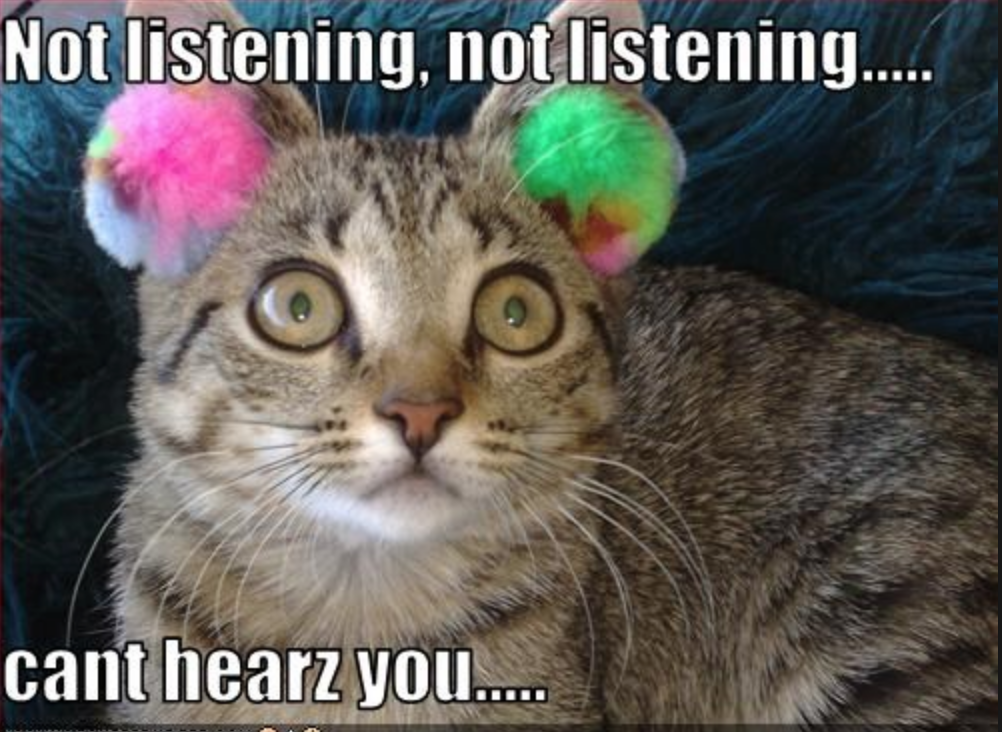
It is HIGHLY unusual for an author who permits me to tear down their Winchester Mansion ‘Novel’ to actually use the new version.
Even though I work very hard to keep the core ideas the writer was most passionate about—the ideas they BEGAN with—and make them integral to the story…there is simply too much emotion.
So many snippets of dialogue, glorious sections of prose, characters I’ve cut away because they didn’t propel the story. To just leave that all behind? It can feel like a betrayal of the worst variety.
To abandon the old design for the new seems traitorous.
Trust me, I UNDERSTAND.
I worked on my own Winchester Mansion ‘Novel’ for almost six years. No matter what critique groups or editors told me, I felt they just didn’t ‘get’ my story. I braved the agent rejections and rewrote and rewrote, adding literary basements, gazebos, and indoor swimming pools.
Inside, I BELIEVED if I didn’t make that first ‘novel’ a mega-success I was a failure.
It wasn’t until I met my first mentor—who happened to be a New York Times best-selling author who’d published almost fifty novels—that I finally listened. When HE told me I had no story, I STILL argued…until I realized how ridiculous I was being.
Then, I went into depression for six months.
After that? I set aside the ‘novel’ and began to actually LEARN my craft. Writing is an artisan skill, which requires we seek the right feedback and listen. Our friends who tell us they can’t believe our novel isn’t already a movie are great encouragers (keep them, you’ll need them).
But if a critique group (a good one with successful authors) keep pointing out the same problems? If editors, beta readers, and people leaving reviews keep pointing out the same problems?
Entertain that they might have a point.
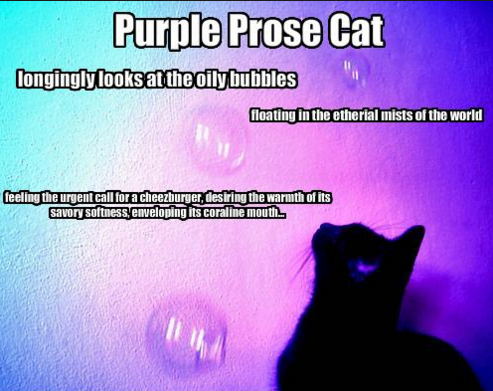
Ultimately, understand that you are NOT a failure because you put the first book in a drawer and moved on. Humans are wired to learn from mistakes, from failure. It is perfectly acceptable to set a novel aside and try something fresh.
Now, if you’re making a habit of this? That’s bad and actually a red flag you need professional guidance and training. Odds are, you’re not understanding structure and the story is caving in.
I want you all to be finishers. But we can’t be finishers if we’ve set ourselves up for failure.
If we aren’t finishing, if no one is reviewing, if the book sales are lackluster, if we keep getting rejected? All good signs to dig in on training and PRACTICE.
Mistake #4: Failure to Understand What Makes a Story a STORY

As I just vividly described, too many ‘novels’ really aren’t novels at all. It’s why I’m liking the term writer less and less as I mature. Putting words on the page is critical, but a lot of words does not a story make. A lot of PRETTY words does not a story make.
Fiction is about one thing and one thing only…PROBLEMS.
To be more specific, a novel is about ONE BIG PROBLEM that will be solved by the end of the book…and not easily.
Fiction is the path of greatest resistance. Be cruel to EVERYONE. If your MC loves something, take it away…then step on it. Smash hopes and dreams and everything they believed to be true.
Every single break they get better be earned with blood. Any new information better COST something.
There need to be stakes—shattering stakes—if the MC fails. Oh, and by the way? They don’t have forever to solve the problem. There’s a ticking clock because we are aging here and COULD be watching Netflix instead.
Stories are FLAWED people making bad choices until the CORE STORY PROBLEM forces them to see their faults, evolve and thus make better choices until they WIN, FAIL or DIE or maybe even ALL OF THE ABOVE.
Great stories are exotic torture devices a reader can escape only ONE WAY. The reader must finish the story to find the key that opens the cage we’ve locked them in.
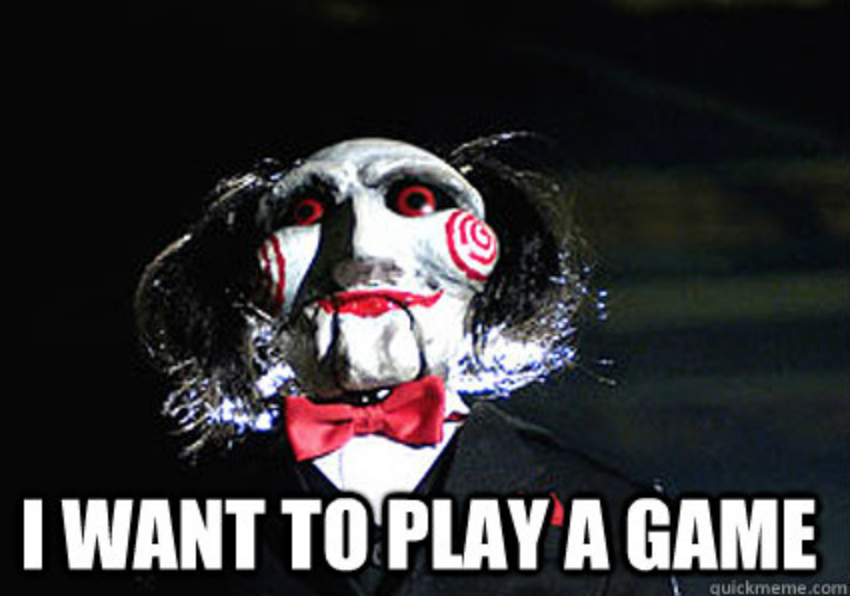
Yeah, writers are sadists.
Mistakes are crucial when learning how to tell stories, because we’re learning ways of building better traps. Yet, these are the good mistakes, the mistakes that come with trial, error, improvement and innovation.
The fatal mistake?
Failing to understand the PURPOSE of a story. What does a story DO? Sure, stories entertain. But the good ones are clever traps that will torment the poor reader, make them scream and cry and rail and beg and walk out breathless at 4:00 a.m. on a work day…cursing our names.
What’s better?
The reader will be so high from the experience, she won’t be able to stop talking about it and telling everyone who will listen. The reader will wait in agonizing expectation for the next chance the author offers another opportunity to be trapped and tortured all over again.
No one evangelizes a book simply because they got it for .99. It won’t matter how many free books we give them or how fancy the marketing. If there’s no trap, no torment? No one cares.
Want to be a good trap-maker? Study traps.
Read a crap ton of books and DOG-EAR them. Yes, I am a monster because that is what good writers are. We are sociopathic, sadistic, masters of torment (but readers are masochists, so it works).
We choreograph torment that leads to the catharsis…the blissful release and euphoria!
***Yes, even the sweet ‘Hallmark’ romances torment readers if they’re well-written. Will guy and gal get together? Can the family overcome their petty fighting in time to do the traditional Christmas Eve sleigh ride one last time before they are forced to sell the farmhouse?
I dog-ear, color, underline and scribble on all books I read, then pull the story apart. How did it hook me? When did it hook me? What did the author DO? How did he or she pull a fast one on me? Can I duplicate that or do a variation? Is it possible to do it even BETTER?
Mistake #5: Breaking the Rules Before KNOWING the Rules
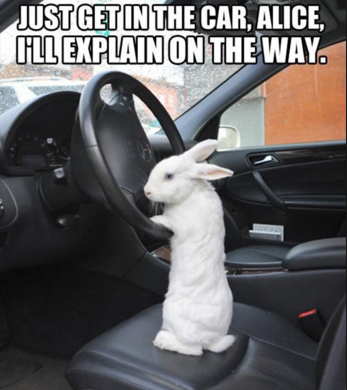
As I mentioned earlier, too many writers believe if they read craft books, take classes, study, learn plot, etc. that the writing will be ‘formulaic.’ All stories have a formula (noun), but not all stories are formulaic (adjective).
***Sort of like if you are nauseated (verb), it means you’re sick to your stomach. Conversely, if you’re nauseous (adjective), it means your mere presence makes others sick to their stomachs.
Before we talk about formulas, though, we first need to define what sort of author we want to be, what genre we are writing, and what kind of books we want to write.
Romance has a formula. Deviate from this formula and you don’t have romance…you have women’s fiction or general fiction.
Most genre fiction has some sort of a formula. Mystery has a formula. There’s a crime discovered at the beginning that is solved by the end. One has to introduce red herrings, clues, etc. by specific points or the audience will call FOUL.
If there is a crime at the beginning but ALSO a race against time to stop some far greater crime at the end? Welcome to the thriller (refer to post on GENRE for more). It’s a thriller if we know who we are stopping, a mystery-thriller if we don’t.
Those who can write excellent pulp fiction quickly can make an incredible living. Before anyone gets snooty…
Some of the greatest works of modern literature have come from what was once considered ‘escapist trash’ (pulp fiction).
***Refer to my tongue-in-cheek post Real Writers Don’t Self-Publish 2 for a comprehensive list.

All this said, rules exist for a reason. Our job as artists is to learn and understand the rules before we go about breaking them. We have to know the WHY behind the rule.
Knowing the WHY is the magic.
Why are we breaking the rules other than to be different?
There is a pretty standard rule that we should pick a POV and stick to it. Why is there this rule? Because changing the type of POV is risky in the hands of the unskilled writer.
If we begin in first-person and switch to third, we can risk giving the reader a headache. Thus, we need a good reason WHY we are breaking this ‘rule’ other than our simple desire to be clever.
T. Jefferson Parker broke this rule in his novel Iron River. He used first-person for the antagonist, Bradley Smith (aka Bradley Jones), the man brokering a deal with the Mexican cartel chief to produce a revolutionary new handgun.
Why?
Because T. Jefferson Parker knows that first-person is the closest psychic distance.
He chose to put Smith’s POV in first person because he wanted the reader to bond more intimately with the antagonist, a man who’s forced onto his dark path when a faulty product drives his family business—Pace Firearms—to the brink of bankruptcy.
By using this close POV for the ‘bad guy,’ T. Jefferson Parker makes it harder for the reader to choose sides. He generates empathy, tension and conflicted loyalties.
All in all, T. Jefferson Parker DELIBERATELY broke the POV rule to elicit a desired and planned EFFECT on the reader. That’s what makes him an artist, and probably a good reason why T. Jefferson Parker is the only author to ever win three Edgar Awards.
Go and BREAK THINGS
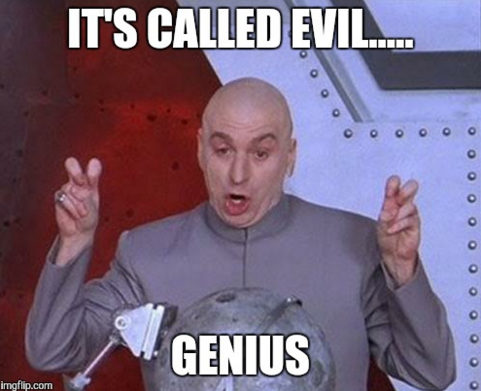
In the end, make mistakes. The RIGHT mistakes. Mistakes can eventually become magic even though they make a hell of a mess. Remember that perfectionism is the elixir of the doomed. When has any artist ever created a masterpiece and not gotten dirty?
Stop reworking the first chapters of the same novel and finish. Even if it sucks. Stop plotting and re-plotting and revising. Yes, we need training (classes, books, coaches, camps, read loads of fiction and break it apart, etc.) but these activities can become great places to hide 😉 .
Get the training, then put it into ugly practice. If you need training, scroll down and I have some fabulous classes for sale ON DEMAND ($15 off until midnight MONDAY May 13th). Delivered right to you to enjoy over and over on your computer (pants not required).
To celebrate Mother’s Day, use the code MOM15 for $15 off all ON DEMAND CLASSES. So if you are a mother or have a mother or just appreciate that writing can be a real mother *&^%$ use the code.
It’s also Cinco de Mayo this Sunday, so tequila should be on sale. Might help with the killing little darlings.
Seems like a sign to me 😛 .
ON DEMAND CLASSES!!!
***NOTE: Classes are designed to play on computers (laptops or desktop) and our technology plays nicest with Chrome or Firefox. Many times the recordings are compatible with other devices like tablets or smartphones, but those devices aren’t always able to access the class because of the changes with HTML5. Use mobile devices at your own risk.
On Demand Fiction Addiction: Write the Books Readers CRAVE!
On Demand for a limited time. Watch all you like from comfort of home. $55
On Demand Story Master: From Dream to Done (A.K.A. Fast-Drafting 101)
Yes, you can write a book in two weeks. I’ve done it using what I teach in here. On Demand for a limited time. $55 for basic/$349 for GOLD
On Demand: Harnessing Our Writing Power with THE BLOG!
On Demand for a limited time. $55 Basic/$165 for GOLD








17 comments
4 pings
Skip to comment form
As usually, all excellent points.
Points I still need to remind myself after 14 books. It doesn’t get easier, you get better. In fact, the more you know the harder it gets, but you get better faster (or you should, anyway)
Author
I agree. I miss being a newbie who “knew” everything. I miss that idiotic certainty, LOL.
Do you know the owner of the bunny driving car photo? I’d love to include that in a short presentation I’m creating for teachers if that is allowed.
A magnificent post, as always. I love the entertaining way you tell us the truth about writing.
Author
Memes are public domain as far as I know (and am concerned). Memes are made for the sole purpose of being shared. There was no denotation on this meme or I would have included it in the image to give credit.
Thank you, Kristen.
When I first got back into writing after over a decade away from it, I wrote three books in two years.
Two or those books have been buried on my hard drive never to see the light of day again.
The third one I am working on my 18th revision. Yeah. 18th. But I loved the characters, I just wasn’t good enough five years ago to do them justice. My 18th draft is with back with my editor after making the changes she suggested, so we’ll see if it’s ready.
Since that novel, I’ve written at least six more. Two are published, and the other four are in various states of revision. I feel like each one I write is better than the last.
The one thing that I need to do to get even better is read more. I totally love reading, but it’s such a balancing act when you’re also writing. It is so much easier to consume than to create, especially with a day job, kids and spouse!
Ummmm… Actually, Mother’s Day is on May 12th this year. But Cinco de Mayo would have been cool. 😀
Author
Wishful thinking.
Author
I extended how long the code is good for. Can you tell I’m a mom? I can’t even find socks let alone get the date of my OWN HOLIDAY correct 😛 .
G.R.R. Martin: I don’t always kill characters… no, wait, yes I do.
I’ve recently been admiring the structure – no, the engineering of some of P.G. Wodehouse’s novels. They read like he just tossed them off one afternoon while sipping a gin and tonic on the lawn, but the way the different circles of plot continually intersect and create new ripples is just masterly.
I remind myself that PGW had a 75-year career – enough time for anyone to get good – but then I read some stuff he wrote in his first decade as a writer and I go back to feeling like a ham-fisted amateur again. Of course, this doesn’t stop me trying. Perhaps one day I shall be a merely chop-handed amateur instead of a ham-fisted one.
If only I could think up a perfectly good story in the first place I’d be happy…
All good points Kristen, but I just can’t shelve my first novel because I’m too old to be mapping out a long career as a writer. This is pretty much the only shot I’m likely to get. It has to work, or I just don’t get to play at all. I’ve been working on it for over 5 years. My craft is getting better. And I’m not just adding random new rooms to the manor. I am ripping off the whole second story and rebuilding it with something that’s a better fit to the foundation. I’ll redo all the drywall if I have to, replace every nail if I must, but the foundation is set, and this is where I have to build. This story is a playtime adventure I made up while babysitting my granddaughter. It’s part of our legacy as a family. Giving up now would be breaking a promise.
Author
Remember I said very few can do this, not NO ONE 😉 . Seems like you are being honest with what needs changing. I’ve never met a plot I couldn’t fix. It’s just the “homeowner” had trouble knocking down walls and tearing down wallpaper.
Kristen,
My Winchester Mansion “novel” is a memoir…help! I’m almost embarrassed to admit that I’ve been working on this baby for 10 years and now I’m considering changing it into a nonfiction help book (more work…ugh!). The heart of me wants to keep it my debut (I’ve spoken with agents, had an agent, and notable traditional publishers seem to want nothing to do with nobodies/non-celebrities) and yet it’s my first book. Maybe I break down and self-publish, but to me that sounds too easy (and more $$). The fact that it’s a memoir may make it a different animal altogether, or does it?
Your guidance would be greatly appreciated.
Author
You can get with me to fix it. I have not met one I can’t fix it just is all the willingness on the part of the author. E mail me at kristen at wana intl dot com
I’d never heard of Winchester Mansion before I read your post. I just googled it and looked at some images, and yes, my early attempts at writing were just like that. Fortunately, in those days you couldn’t just stick your stories on Amazon like you can now, or they might well be out there embarrassing me to death.
Hey Kristen, Good points here! You said that you have to know the rules before you can break them. That actually makes perfect sense to me. I am better at writing essays than novels and better at poems since that is where I have put most of my focus. As with what you describe in novels, there is a cadence and overall method to the pace of the story or poem. I can appreciate the plight of the novel writer! Not to be confused with novice writer. 🙂 I hope you don’t mind if I share it, but I do most of my practice writing with Ultius, Inc. I write freelance with them and they pay me to work on shorter writing projects all on my own schedule. They are based in the US and mostly look for post college graduates who have experience with at least college level writing. It is a super reliable and care-free way to earn income from home, or anywhere with an internet connection. I highly recommend it for those who are looking to hone their craft and earn extra income while they do it.
[…] Newbie Mistakes that Will KILL a Perfectly Good Story https://authorkristenlamb.com/2019/05/five-mistakes-kill-story/ Advice from this experienced author and social media maven is always worth […]
[…] Read the entire blog post here […]
[…] 5 Mistakes Newbies Make that Kill Stories | Kristen Lamb […]
[…] I came across a blog post last week that was a reblog of a reblog. My first thought was ‘that’s got to be a good article, so I skipped over to the originator’s site and had a read and discovered the post you see beneath, from author Kirsten Lamb. […]